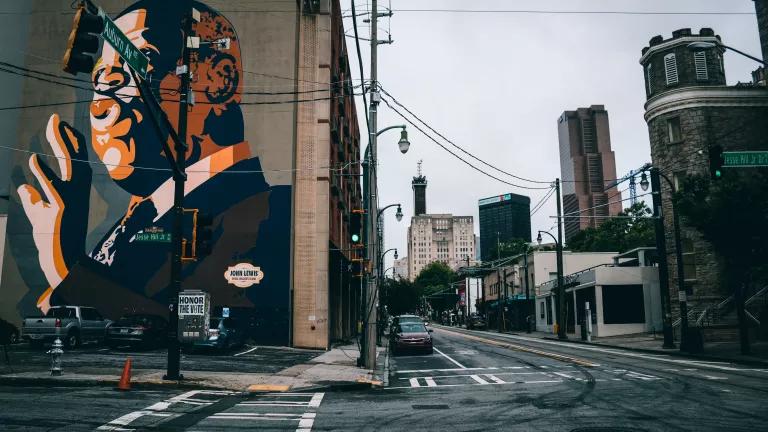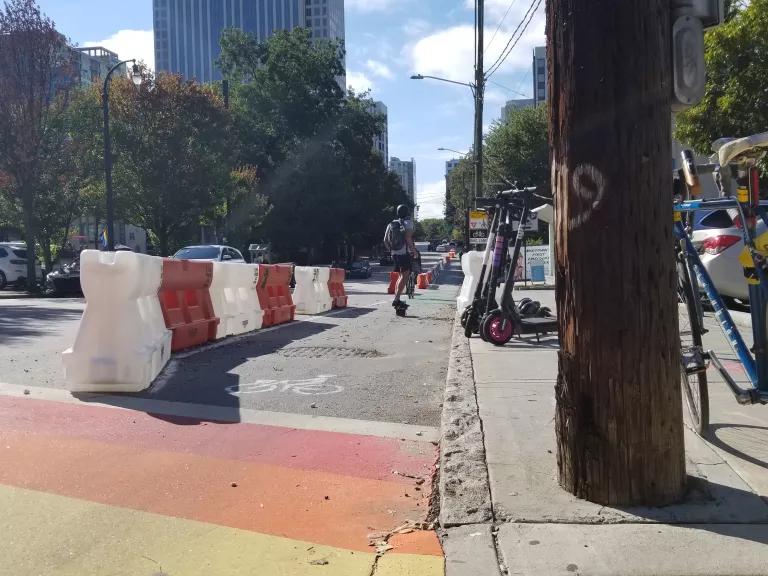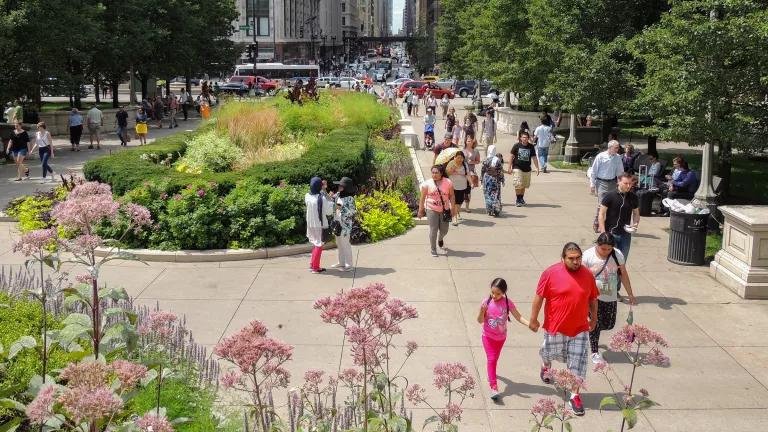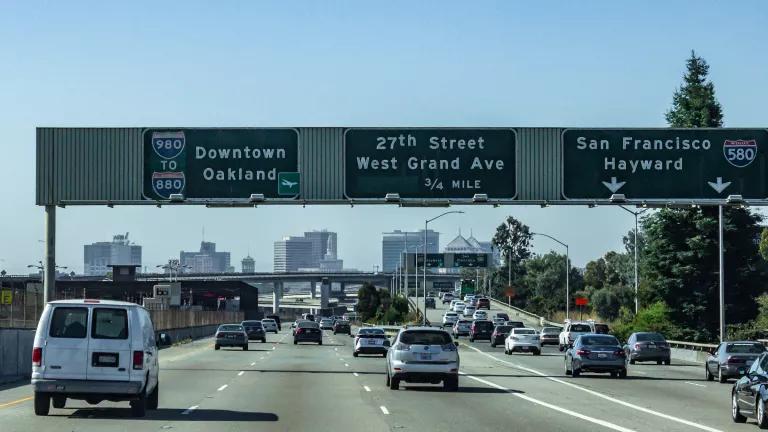Support Atlanta’s Communities Through Infrastructure Investments
A new day for Atlanta’s infrastructure? 2023’s City budget season will decide.

By Greg Keelen on Unsplash
Crossing DeKalb Avenue in Atlanta has been dangerous for almost as long as the road has existed in its current form. Characterized by a middle “suicide lane” that changed directions depending on the time of day, DeKalb has long prioritized cars and commute patterns over pedestrians and even drivers themselves. Add that to broken asphalt and sidewalks in disrepair, this major throughway has had more than its share of problems. Over the years, crashes have piled up and people have died due to the severe need for road upgrades – but that is now, hopefully, at an end.
After nine years of project and funding delays, by the end of this calendar year DeKalb Avenue will finally be safer – for pedestrians and drivers alike. This is just one example of the types of infrastructure projects that have seen severe delays in Atlanta over the past two decades. And now we have a new opportunity to make sure these kinds of delays don’t continue.
In this year’s budget, the City of Atlanta must invest in its DOT to a level that ensures the agency can better deliver on its promised infrastructure projects, make streets safer for all Atlantans, and fully leverage the historic federal funding presented by the passage of the Inflation Reduction Act and Infrastructure Investment and Jobs Act.
Atlantans broadly agree that addressing the city’s transportation problems has been and remains a top issue for their communities. The city a has a range of critical transportation investments it needs to make to both correct historic injustices in public sector transportation decisions and address the adverse and inequitable public health impacts of our current transportation system. On top of that, transportation is Atlanta's second largest source of climate pollution – a number the city must bring down to do its part to fight the climate crisis
Right now, Atlanta’s roadways are unsafe, for people both in and out of cars. Investing in the DOT will make the city’s roads safer for everyone – and will help slow the emissions that fuel climate change.

We must end traffic fatalities
Traffic fatalities are rising and disproportionately impact vulnerable roadway users, such as pedestrians, cyclists, and people who use wheelchairs. These challenges inspired the creation of Atlanta’s DOT, but these challenges cannot be addressed by an under-resourced DOT.
In 2018, under Mayor Keisha Lance Bottoms, Atlanta was selected as one of 25 cities to participate in the Bloomberg Philanthropies American Cities Climate Challenge. Through the challenge, participating cities received formidable resources to accelerate climate action with a specific focus on clean buildings and transportation. Through these efforts and with the support of the National Association of City Transportation Officials (NACTO), Atlanta’s DOT was established in November 2019. The newly formed agency introduced a bevy of new policies and programs centered on safety, equity, and sustainability to ensure that the City's transportation infrastructure best served the needs of all Atlantans, whether taking transit, walking, cycling, or driving.
Atlantans deserve safer streets
Atlantans need safer and more sustainable transportation options so everyone can choose how to get around, in whatever way works best for them. Recent research shows that just a small number of streets, such as Cascade Road and Moreland Avenue, accounted for 1/3 of traffic fatalities and 1/5 of severe injuries. A greater prioritization of projects along these dangerous corridors is needed, and a better-staffed DOT will be more able to deliver safer streets.
An acknowledgment of this reality is why in 2020 the City Council solidified Atlanta's commitment to safer streets by passing the Vision Zero ordinance. This ordinance required the development of a Vision Zero Action Plan and authorized a 25 mph default speed limit on many city streets. This action plan prioritizes the needs of the Atlanta’s most vulnerable roadway users, including pedestrians, bicyclists, transit riders, children, seniors, and especially those in low-income and communities of color.
This plan was further bolstered in 2022 when Atlanta voters approved the Moving Atlanta Forward infrastructure bond program. This much needed infrastructure package included $460 million in transportation and safe street investments in the form of 68 projects to be delivered by the agency. With additional funding and full-time staff, the agency will be able to better deliver on the action plan and the bond program’s overarching goals of eliminating all traffic fatalities and addressing major infrastructure needs in the city.
Georgia’s capital city should be a leader in the South
Atlanta is ceding ground as an emerging leader in South by underinvesting in the agency. Since the its inception, the city’s DOT's budget has marginally increased year over year but remains significantly less than that of peer cities. Mayor Andre Dickens’ draft budget for the 2024 calendar year shows a 12.5 percent decrease for the agency, which is a step in the wrong direction.
Atlanta has been very successful in attracting businesses and economic development opportunities and needs to match that level of investment in its DOT. It's great to see the number of impactful projects continue to grow – but the ability of its current staff to shoulder the work required to complete and deliver on commitments is concerning. With only five managers being expected to work on more than 220 projects, it’s no wonder projects like the DeKalb Avenue refresh have taken so long to complete. Atlanta is at serious risk of under-resourcing its commitments to deliver the hundreds of promised new and overdue projects, from major street projects to general traffic calming and routine infrastructure maintenance.
Atlantans need and deserve a better funded transportation department to ensure that our streets are safe places to get to work, school, healthcare, shopping, dining, and more. We know that a city’s values are best reflected not in words but in its budget. The agency has spent the last three years learning to walk. In order to run, it needs more funding and sustained support from Atlanta’s leaders."The proof is in the asphalt,” said Atlanta Transportation Commissioner Solomon Caviness in reference to the long-overdue progress finally being made on DeKalb Avenue. Ultimately, that will be true across Atlanta, should City Council take action – and investing in our city’s transportation in the budget process is the first step.



